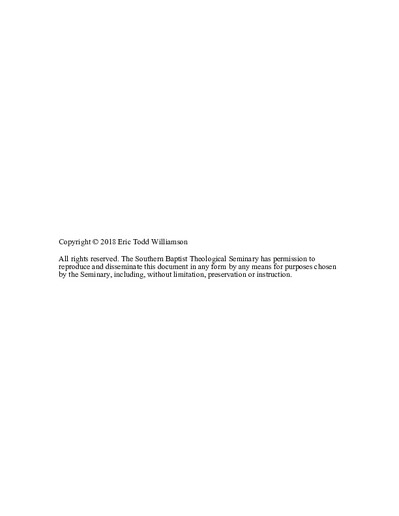| dc.description.abstract | The two traditional views in the epistemology of disagreement have offered distinct responses to the challenge of epistemic conflict. The purpose of this dissertation is to challenge these responses and offer a satisfactory position. This position is congruent with social epistemology as well as Christian apologetics. Chapter 1 introduces the epistemology of disagreement, giving attention to the concepts of disagreement found in the literature on religious diversity. This introduction also demonstrates that the two responses to disagreement possess features that are problematic for apologetics. Chapter 2 addresses the epistemic problems of the conciliatory response to disagreement. This chapter concludes that conciliation possesses an excessive view of testimony, and a low view of self-trust. Chapter 3 focuses on the epistemological matters of the steadfast position. This chapter maintains that steadfastness is premised on a deficient view of testimony, and an excessive view of self-trust. These two chapters show the internal deficiencies of both positions; thus, weakening their challenge against apologetics. Chapter 4 presents the position of virtue responsibilism as a satisfactory and advantageous response to the epistemology of disagreement. This response is the virtuous response to disagreement. Chapter 5 expands on the natures of two intellectual virtues: intellectual courage and open-mindedness. These two intellectual virtues are particularly relevant to the discussion of disagreement and apologetics. Chapter 6 applies the virtuous response to disagreement with experts and the challenge of religious diversity. The chapter shows that conciliation and steadfastness are unable to provide satisfactory responses to these issues, while the virtuous response presents an advantageous response for Christian apologetics. Chapter 7 summarizes the main points of the dissertation, offering practical applications as well as areas for further research. | en_US |

